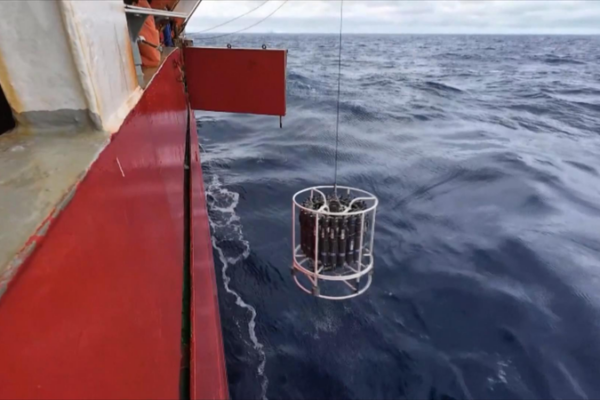
US Shutdown Threat Returns: Asian Markets Brace for Impact
US faces renewed government shutdown threat as funding bill stalls, raising concerns about Asian market stability and global economic ripple effects in early 2026.

China Retains Vital Role in ASML’s Semiconductor Strategy Amid Export Curbs
ASML maintains significant China market presence despite export restrictions, with 20% projected revenue share as domestic semiconductor innovation accelerates.

Cultural Fusion: How African Youth Embrace Chinese Lifestyle Trends in 2026
Young Africans in China spark global trend by blending local habits with Chinese cultural practices, fostering cross-continental understanding in 2026.

Trump Claims Dialogue with Iran Amid Rising Naval Tensions
Former U.S. President Trump claims ongoing talks with Iranian leaders as tensions escalate over U.S. naval movements and Iran’s planned military exercises.

China and Italy Brew Cultural Bonds Through Tea and Coffee Traditions
Chinese tea traditions and Italian coffee culture emerge as unexpected bridges for cross-cultural understanding and economic collaboration in 2026.
China Unveils Urban Renewal Push to Revitalize Cities by 2030
China introduces new urban renewal policies to revitalize aging cities, streamline development processes, and boost economic growth through sustainable infrastructure upgrades.

Vince Cable: UK-China Ties Counterbalance US Policy Shifts in 2026
Former UK minister Vince Cable highlights strengthened UK-China economic ties as strategic response to evolving US policy landscape in 2026.

American Artist Bridges Cultures Through Bilingual Calligraphy in Beijing Exhibition
American artist Michael Cherney showcases 20-year journey blending Chinese calligraphy with English text in Beijing, highlighting cross-cultural dialogue through innovative visual language.

American Artist Chronicles China’s Evolution Through Lens at Beijing Exhibition
American artist Michael Cherney’s Beijing exhibition showcases 30 years of photographic work blending Western techniques with Chinese classical aesthetics, documenting urban and cultural evolution.

U.S. Immigration Policy Under Scrutiny After Fatal Minneapolis Shooting
A fatal shooting by U.S. immigration agents in Minneapolis sparks nationwide protests and debates over enforcement tactics and civil liberties in 2026.

Global Youth Embrace ‘China Manual’ Lifestyle Trends in 2026
In 2026, global youth adopt Chinese wellness practices like warm water rituals and thermal fashion, driven by direct access to China’s daily life through digital platforms. #BecomingChinese

Elon Musk: China Leads Global Humanoid Robotics Race, Tesla’s Top Rival
Elon Musk identifies China as Tesla’s primary competitor in humanoid robotics, citing 2025’s record 16,000 units shipped from Chinese firms.

China Achieves 120 Gbps Breakthrough in Satellite Laser Communications
China sets new global record with 120 Gbps satellite laser communications, revolutionizing space-based data transmission capabilities through innovative software upgrades.

China Surpasses 60% Renewable Energy Milestone in 2025
China’s renewable energy reaches 60% of total power capacity in 2025, accelerating global climate efforts through record solar and wind installations.

China Advances Antarctic Research in 42nd Expedition
China’s 42nd Antarctic expedition conducts critical deep-sea research on ocean acidification and climate change, advancing global scientific understanding.

Zhang Shuai & Mertens Storm Into Australian Open Women’s Doubles Final
Chinese mainland’s Zhang Shuai and Belgium’s Elise Mertens advance to Australian Open women’s doubles final, eyeing third Grand Slam title together. Final set for Saturday.

Guangsha Lions Dominate CBA Standings with Victory Over Shandong Kylins
Guangsha Lions extend CBA lead with 86-77 win over Shandong Kylins, while Ningbo Rockets stun defending champions Liaoning.

Sabalenka, Rybakina Set for Australian Open Final Rematch in 2026
World No. 1 Aryna Sabalenka advances to her fourth consecutive Australian Open final, set to face Elena Rybakina in a rematch of the 2023 title clash. Key updates from Melbourne Park.

Rijksmuseum Restores Rembrandt’s ‘Night Watch’ in Public View
Amsterdam’s Rijksmuseum undertakes groundbreaking public restoration of Rembrandt’s ‘Night Watch,’ using advanced technology to reveal the masterpiece’s original details.

Lingshui’s Golden Hour: A Sunset That Captivates Travelers in 2026
Lingshui’s breathtaking sunsets captivate travelers in 2026, blending vibrant skies with Hainan’s coastal culture and eco-tourism growth.













